Japanese cuisine is constantly ranked as one of the top ten best cuisines in the world. With its aesthetic of beautifully presented food and the use of fresh, high-quality seasonal ingredients, it is no wonder that sushi is so highly prized by people around the world. Using modern technology and own creativity, featured designers and food artists transform this Japanese delicacy into a sophisticated work of art.
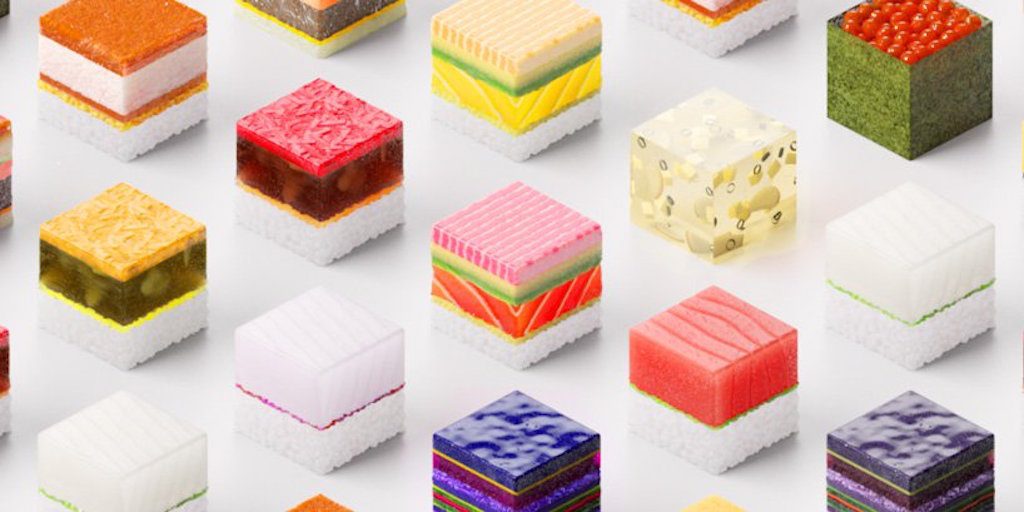
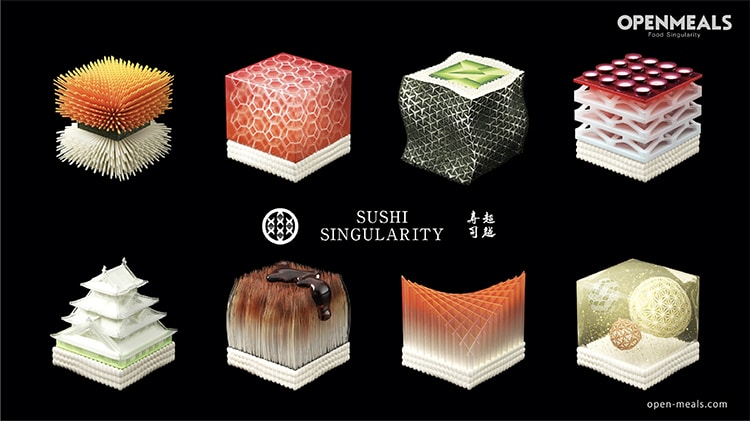
3D-printed sushi by Open Meals (also header image)
While 3D printing in the food industry isn’t an entirely new phenomenon, the Japanese startup Open Meals uses this technology to customise nutritious food utilizing a water-based printer. Their new restaurant in Tokyo called Sushi Singularity aims to revolutionize sushi by digitizing its ingredients, designs, and flavors. Open Meals quotes scientific studies, which read that while wellbeing guidelines can apply to most of us, we all have individualised responses to food.
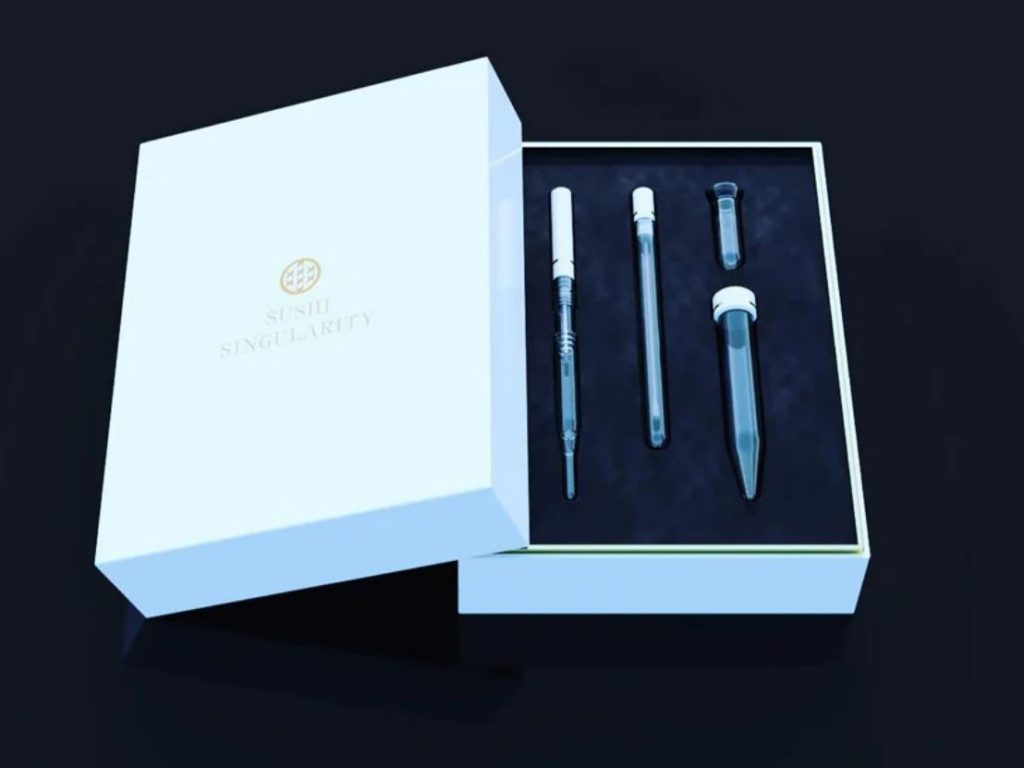
3D-printed sushi by Open Meals
The startup uses the fusion of futuristic technology and Japanese culinary tradition to create biometric-optimized sushi. Guests who make reservations in the restaurant are asked to submit a health test kit with biological samples (such as saliva and urine) to determine what nutrients should be in their meal. The biometric and DNA data are then analysed by health experts prior to using 3D printers and laser technology to create hyper-personalized dishes injected with nutrients that the customer might be lacking in.
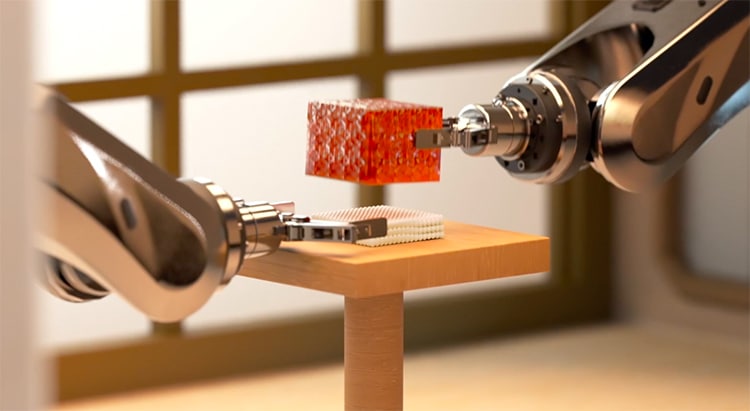
3D-printed sushi by Open Meals
The food cartridges in Pixel Food Printer contain primarily plant ingredients, such as seaweed, enzymes and fibre and can also inject personalised agents, flavours, nutrients and supplementations to the food. Using recipes uploaded to the Food Base, the encoded sushi is then printed in one of the available designs – “cube” or pixelated “8-bit”.
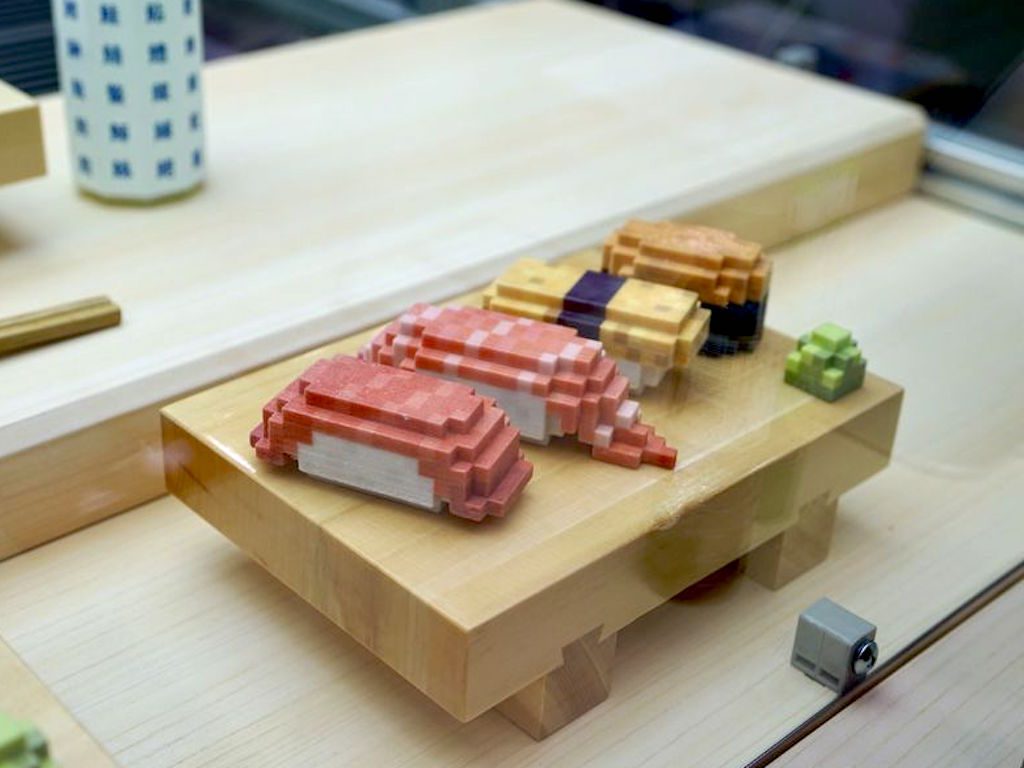
3D-printed sushi by Open Meals
Open Meals intends to create the world’s first standardised digital food system, which will transform the global food system by upgrading its technology to enable sharing, downloading and printing all types of food. In the future, the company hopes to expand their service within hospitals and nursing facilities to provide personalised dietary approaches for optimal health.
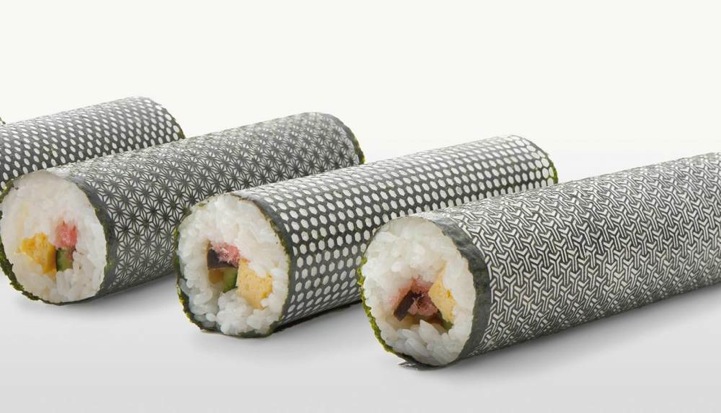
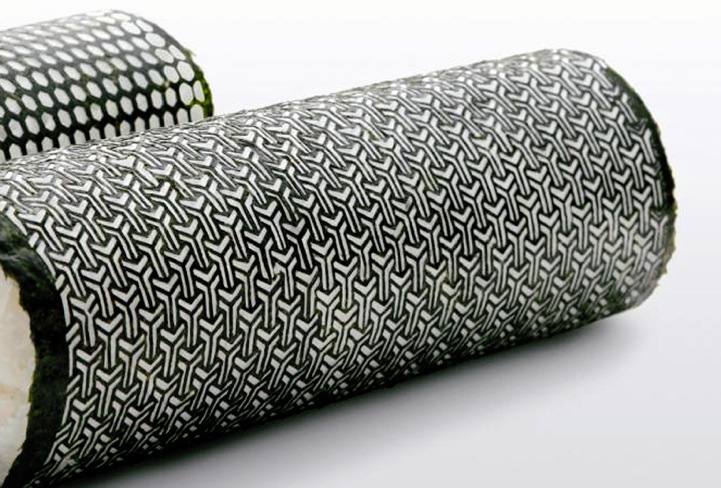
Design Nori by I&S BBDO for the Umino Seaweed Shop (via Modern Met)
In an effort to reignite the seaweed-eating community for their client, a seaweed wholesale and retail store in Ibaraki Prefecture called Umino Seaweed Shop, Japan-based creative agency I&S BBDO has developed a series of stylized laser-cut seaweed for rolling sushi. Aptly named Design Nori (nori is the Japanese word for the seaweed paper most commonly used for sushi), the stylized sheets turn the traditional Japanese delicacy into a work of art.

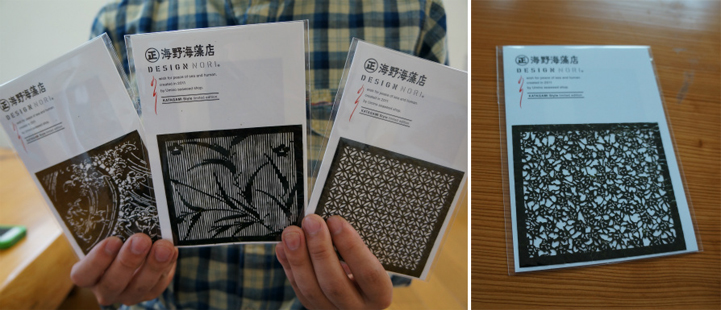
Design Nori by I&S BBDO for the Umino Seaweed Shop (via Modern Met)
Each of the five designs – Sakura (‘cherry blossoms’), Mizutama (‘water drops’), Asanoha (‘hemp’), Kikkou (‘turtle shell’), and Kumikkou (‘tortoise shell’) – is based on different elements of Japanese history or symbology that represent various symbols of positivity, such as good fortune, growth, happiness, and longevity.

Shoe-shi by Yujia Hu
Simultaneously skilled both in art and in cooking, Milan-based sushi chef Yujia Hu, who goes by the name theonigiriart, assembles Shoe-shi, detailed miniature replicas of contemporary footwear fashion made out of sushi ingredients. While rice forms the significant part of each shoe’s design, tuna, salmon, and seaweed have been used to add familiar footwear features and recognizable brand markings.
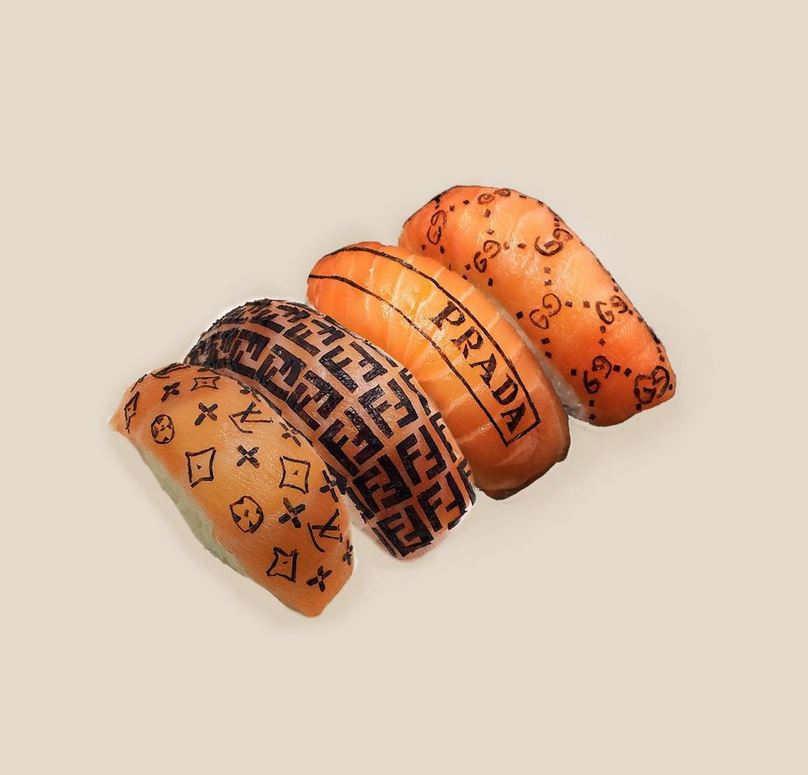
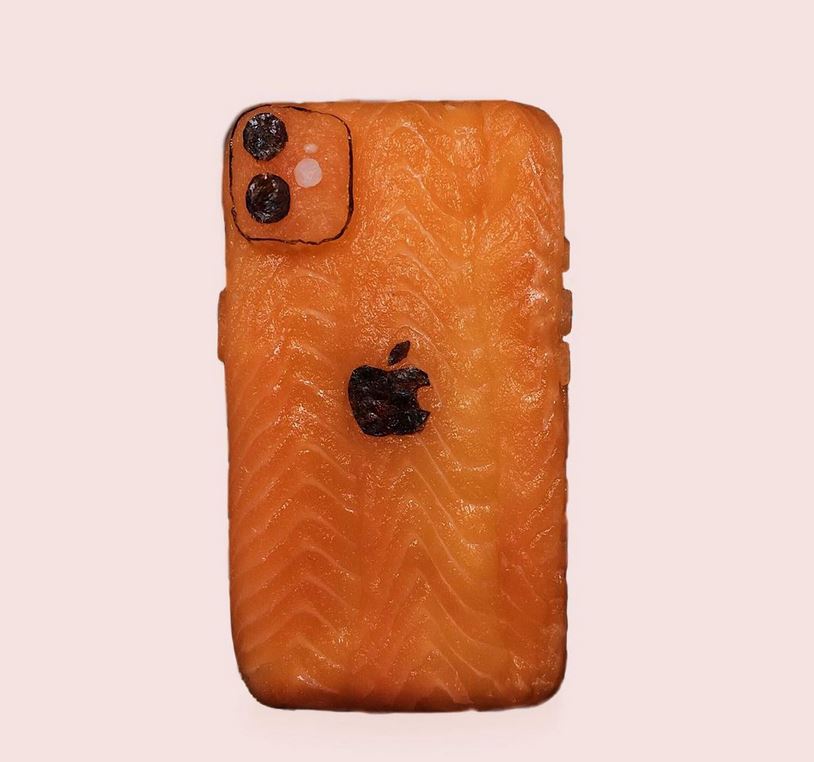
Shoe-shi by Yujia Hu
From trendy basketball sneakers to casual slip-on sandals, Yujia Hu’s collection of sushi shoes artistically showcases today’s tastes in athletic shoes. The chef also offers other meticulously detailed sushi bites representing various iconic pop culture designs. Visitors of the Sakana restaurant in Milan can enjoy the onigiri in person.